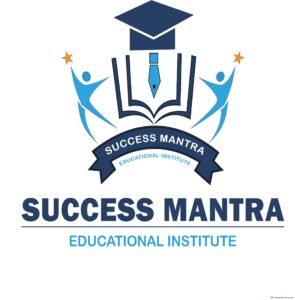NMAT
The NMAT by GMAC is a national-level MBA entrance exam conducted by the Graduate Management Admission Council (GMAC).The exam is widely accepted by Narsee Monjee Institute of Management Studies (NMIMS) and many other top business schools in India and abroad.
About NMAT
The NMAT by GMAC is a national-level MBA entrance exam accepted by top B-schools, including NMIMS, designed to assess candidates in Language Skills, Quantitative Skills, and Logical Reasoning. It offers flexible scheduling, multiple attempts, and no negative marking, allowing candidates to choose their highest score for admission.

Eligibility Criteria
- Educational Qualification: Candidates must hold a bachelor’s degree (minimum of 3 years) from a recognized university.
- Minimum Marks: A minimum of 50% aggregate marks is generally required, though requirements may vary by program and institute.
- Final Year Students: Students in the final year of their bachelor’s program may also apply.
- Work Experience: While not mandatory, work experience can enhance the profile for some business schools.
Exam Structure
The NMAT is a computer-based test (CBT) available during a testing window spanning several months (typically October to December). It allows candidates to choose their exam date and time and to retake the exam up to three times in a testing cycle. The exam evaluates skills in three key areas: language, quantitative ability, and logical reasoning.
Exam Pattern
- Total Duration: 2 hours (120 minutes).
- Total Questions: 108 questions.
- Sections: 3 sections.
- Marking Scheme: No negative marking, with each question carrying equal weight.
Section | Number of Questions | Time Limit |
Language Skills | 36 | 28 minutes |
Quantitative Skills | 36 | 52 minutes |
Logical Reasoning | 36 | 40 minutes |
Syllabus
The NMAT syllabus covers a variety of topics within each section:
a. Language Skills
- Topics: Reading Comprehension, Grammar, Vocabulary, Para Jumbles, Cloze Test, Error Identification.
- Focus: Tests reading comprehension, grammar knowledge, vocabulary, and language proficiency.
b. Quantitative Skills
- Topics: Arithmetic (Percentages, Profit & Loss, Ratios), Algebra, Geometry, Data Interpretation, Number Properties, and Word Problems.
- Focus: Evaluates numerical ability, mathematical knowledge, and problem-solving skills.
c. Logical Reasoning
- Topics: Analytical Puzzles, Arrangements, Blood Relations, Series, Coding-Decoding, Statements & Arguments.
- Focus: Measures logical reasoning, critical thinking, and analytical skills.
Application Process
Steps to Apply
- Fill Application Form: Provide personal, academic, and professional details.
- Exam Scheduling: After registration, candidates can choose their preferred exam date, time, and location.
- Upload Documents: Upload a recent photograph and signature as per guidelines.
- Application Fee Payment: Pay the exam fee online through debit/credit cards, net banking, or UPI.
Application Fee
- Registration Fee: ₹2800 + applicable taxes for one attempt.
- Retake Fee: ₹2800 + applicable taxes per attempt.
- Rescheduling Fee: ₹1200 + applicable taxes (if candidates need to reschedule their test).
Important Dates
Registration Window: Typically from August to October.
- Scheduling Window: Usually from August to October.
- Testing Window: From October to December.
- Result Declaration: Within 48 hours of the exam attempt.
Preparation Tips
- Focus on Weak Areas: Analyze performance in mock tests to identify and improve weaker areas.
- Vocabulary and Reading Practice: For Language Skills, read widely and focus on vocabulary and comprehension exercises.
- Quantitative Problem Solving: Review high school math concepts and practice word problems to strengthen quantitative skills.
- Logical Thinking Practice: Use puzzles and logical reasoning exercises to build problem-solving skills for Logical Reasoning.
